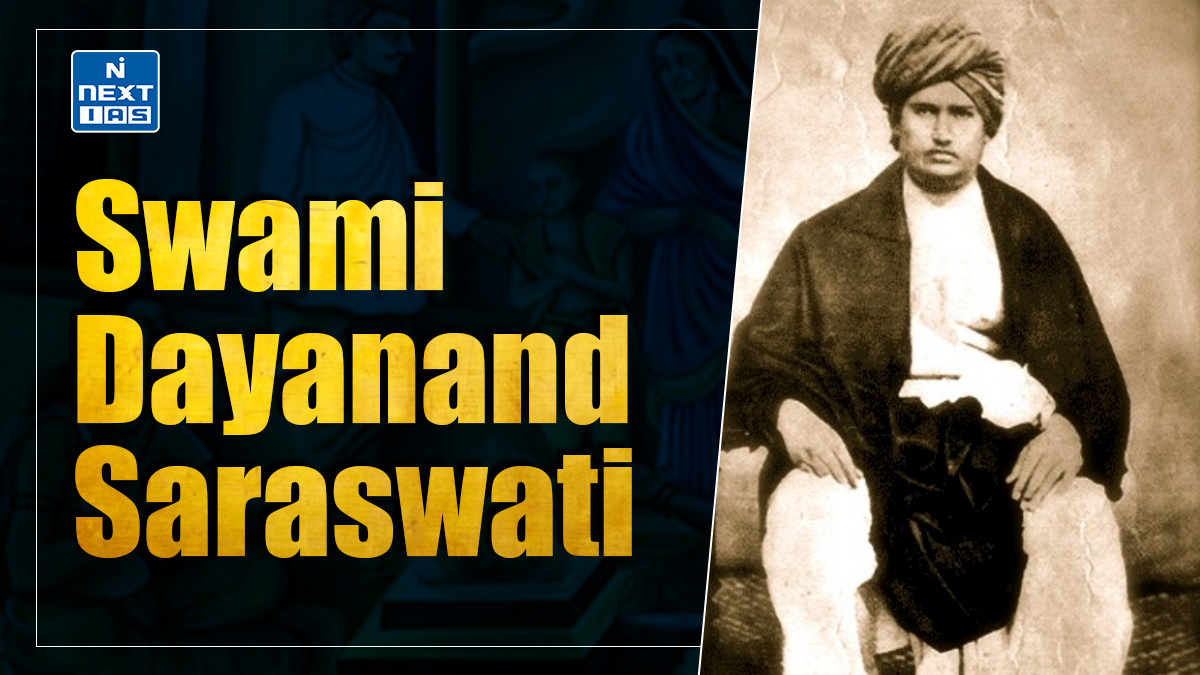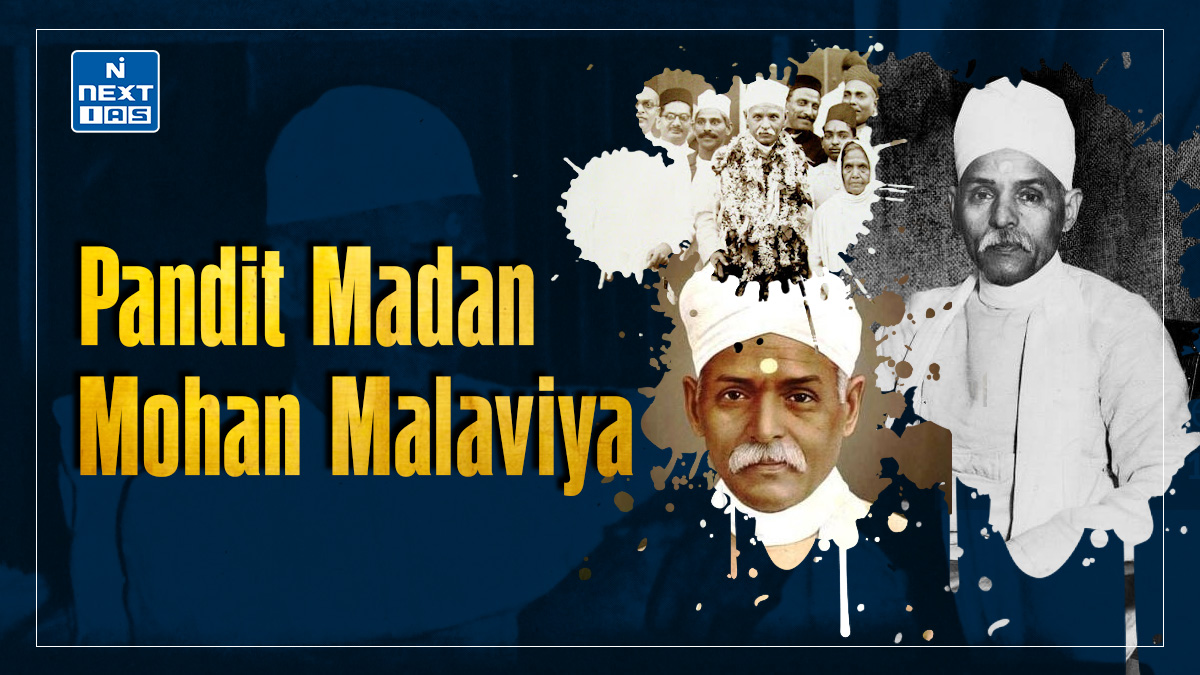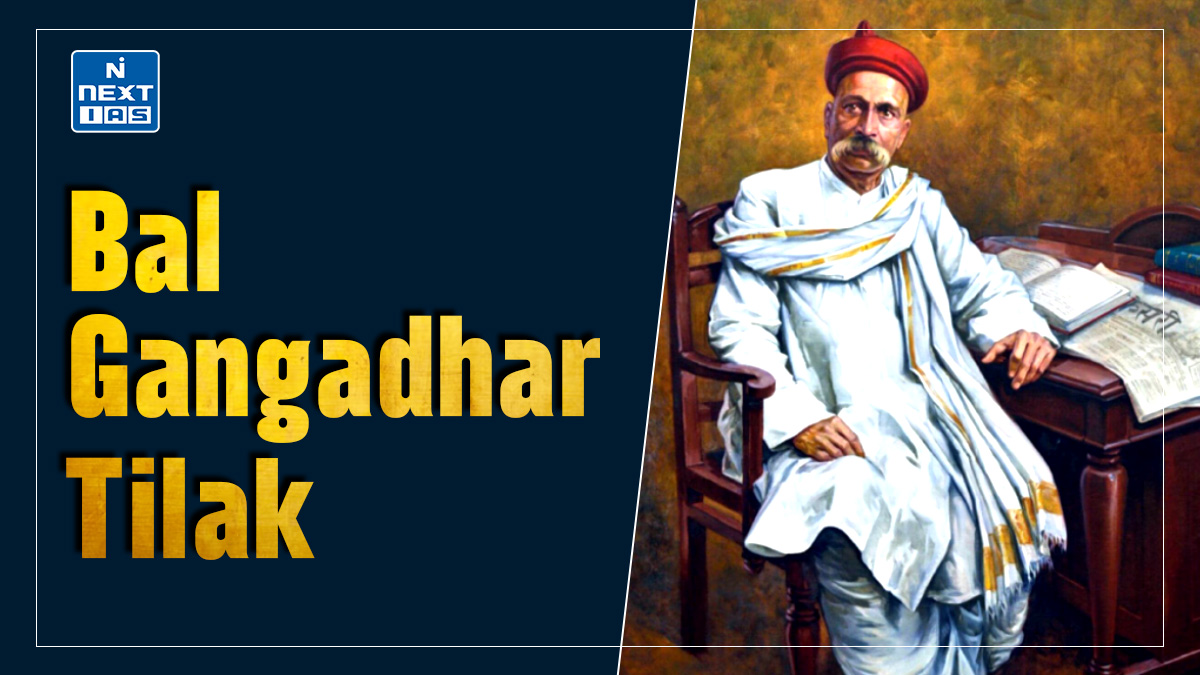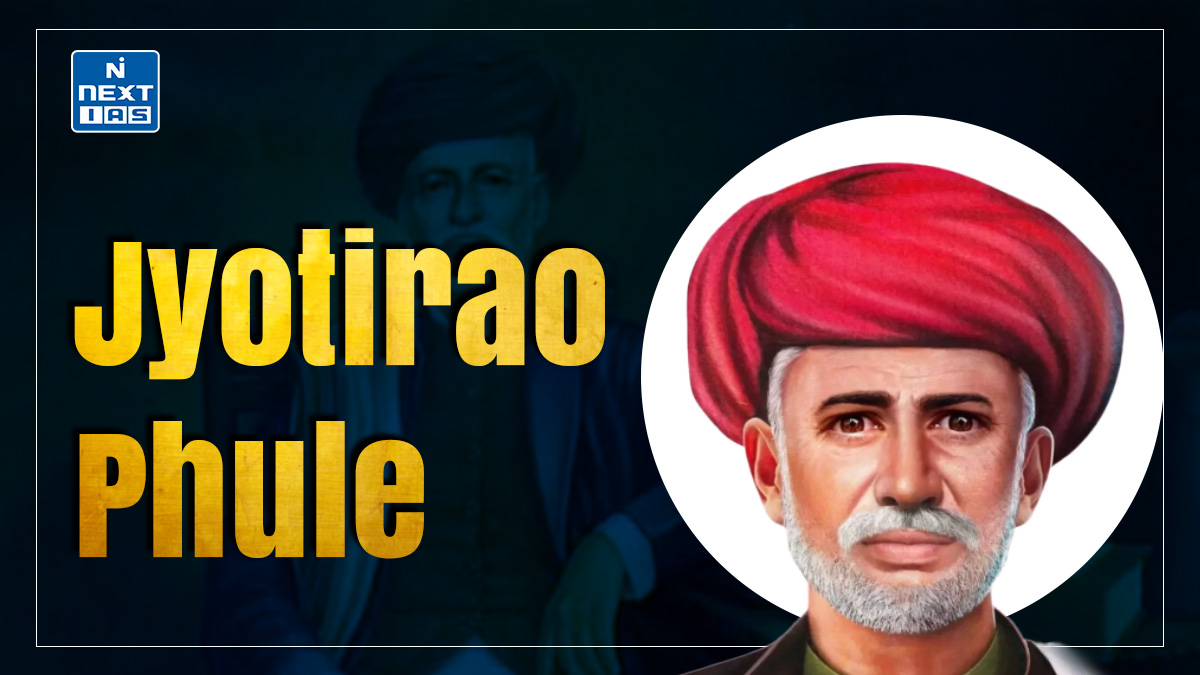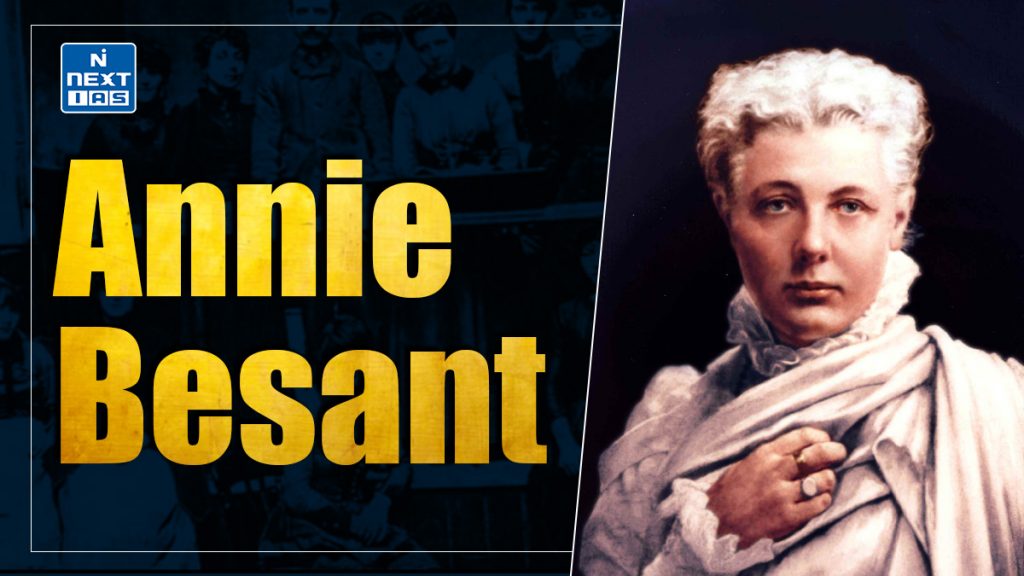
Annie Besant was a British social reformer, theosophist, and political activist who played a pivotal role in India’s independence movement. She is best remembered for her leadership in the Home Rule Movement and her efforts to promote education, women’s rights, and social reforms in India. This article aims to study in detail the life, contributions, and legacy of Annie Besant.
About Annie Besant
- Annie Besant (1847–1933) was a distinguished social reformer, theosophist, author, and advocate for Indian self-rule.
- A prominent figure in India’s struggle for independence, she played a crucial role in intertwining the spiritual and political spheres of India during the early 20th century.
- Her efforts in promoting education, advocating for women’s rights, and fighting for India’s independence made her a towering figure in both Indian and global history.
Biography of Annie Besant
- Born on October 1, 1847, in London, Annie Besant was early inclined toward intellectual and social reform.
- After her marriage to Reverend Frank Besant, she became disillusioned with her conservative environment and pursued a more independent path.
- Her early association with Charles Bradlaugh introduced her to secularism and the Free Thought Movement, which laid the foundation for her reformist zeal.
Journey of Annie Besant to Theosophy and India
- Besant’s quest for spiritual understanding led her to the Theosophical Society, co-founded by Helena Blavatsky.
- She embraced Theosophy, a spiritual movement emphasising the unity of all religions and the quest for divine truth.
- In 1893, Besant arrived in India, where she found her life’s mission. She believed India to be the cradle of spiritual wisdom and was deeply inspired by its ancient traditions.
- Her work with the Theosophical Society gained momentum in India, where she propagated the idea of universal brotherhood, education, and spiritual rejuvenation.
Educational Reforms of Annie Besant
- Annie Besant firmly believed in the transformative power of education.
- In 1898, she founded the Central Hindu College (CHC) in Varanasi, which later became the nucleus of the Banaras Hindu University (BHU) under the leadership of Pandit Madan Mohan Malaviya.
- Her aim was to create an institution that blended modern Western education with traditional Indian values.
- She was also instrumental in promoting women’s education, which she saw as a critical step in uplifting Indian society.
- Her contributions to education extended to supporting co-education and advocating for accessible, inclusive learning.
Role of Annie Besant in India’s Freedom Struggle
- Annie Besant’s political engagement in India began with her fervent support for Indian self-rule (Swaraj).
- She joined the Indian National Congress and became one of its most vocal leaders.
- In 1916, she launched the Home Rule Movement, which demanded greater autonomy for India within the British Empire.
- The movement inspired many Indians to rally for independence and marked a significant step in the freedom struggle.
- Her leadership and efforts culminated in her election as the President of the Indian National Congress in 1917, making her the first woman to hold this prestigious position.
Theosophy and Social Reforms
- Besant’s philosophical beliefs influenced her social reform work in India. She emphasised the unity of all religions and advocated for universal brotherhood.
- Her spiritual ideals motivated her to campaign against the caste system and untouchability, which she saw as significant impediments to India’s progress.
- She also supported women’s rights, including advocating for the abolition of child marriage, polygamy, and the purdah system.
- Annie Besant believed that a society could not progress without the equal participation of women.
Literary Contributions of Annie Besant
Annie Besant was a prolific writer who authored over 300 books and pamphlets on various subjects, including religion, philosophy, and politics. Her writings include:
- “The Ancient Wisdom” – A theosophical exploration of spiritual truths.
- “India: A Nation” – A passionate appeal for India’s independence.
- Numerous essays and articles in her newspaper, “New India”, where she voiced her political opinions and advocated for social reform.
Legacy of Annie Besant
Annie Besant passed away on September 20, 1933, but her legacy endures as a testament to her tireless efforts for India’s social, educational, and political emancipation. Her contributions include:
- Establishing the Central Hindu College, a cornerstone of modern education in India.
- Promoting women’s rights and education.
- Leading the Home Rule Movement, which became a precursor to the larger independence movement.
- Strengthening theosophy and fostering intercultural understanding between the East and the West.
Annie Besant & Home Rule League
- Annie Besant, a British social reformer and theosophist, played a pivotal role in India’s struggle for self-governance.
- She founded the Home Rule League in 1916, inspired by the Irish Home Rule movement, to demand greater autonomy for India within the British Empire.
- Through her league, she launched a vigorous campaign advocating self-rule, organizing public meetings, publishing pamphlets, and mobilizing public opinion.
- Annie Besant’s efforts were instrumental in creating a sense of national awakening and laying the groundwork for future mass movements led by Indian leaders.
- Her leadership in the Home Rule League made her one of the first women to actively and effectively challenge British authority in India.
Conclusion
Annie Besant’s life was a confluence of spiritual exploration, social reform, and political activism. Her unique approach to blending spirituality with action allowed her to leave an indelible mark on India’s freedom struggle and social fabric. Annie Besant remains a symbol of courage, intellect, and an unwavering commitment to justice and equality. Her contributions remind us of the power of dedication and the enduring importance of standing for what is just and right, even in the face of formidable challenges.
Frequently Asked Questions (FAQs)
Who was Annie Besant?
Annie Besant was a British social reformer, theosophist, and Indian nationalist who advocated for India’s self-rule and played a significant role in its freedom struggle. She was the first woman president of the Indian National Congress in 1917.
What is the contribution of Annie Besant to India’s freedom struggle?
Annie Besant founded the Home Rule League in 1916, advocating for India’s self-governance and inspiring nationalist sentiment through public meetings, writings, and mobilization efforts. She also worked tirelessly to promote education, cultural revival, and social reforms, significantly influencing India’s fight for independence.
Which newspaper was started by Annie Besant?
Annie Besant started the newspaper New India, which she used as a platform to promote the ideas of self-rule, social reform, and Indian nationalism.


